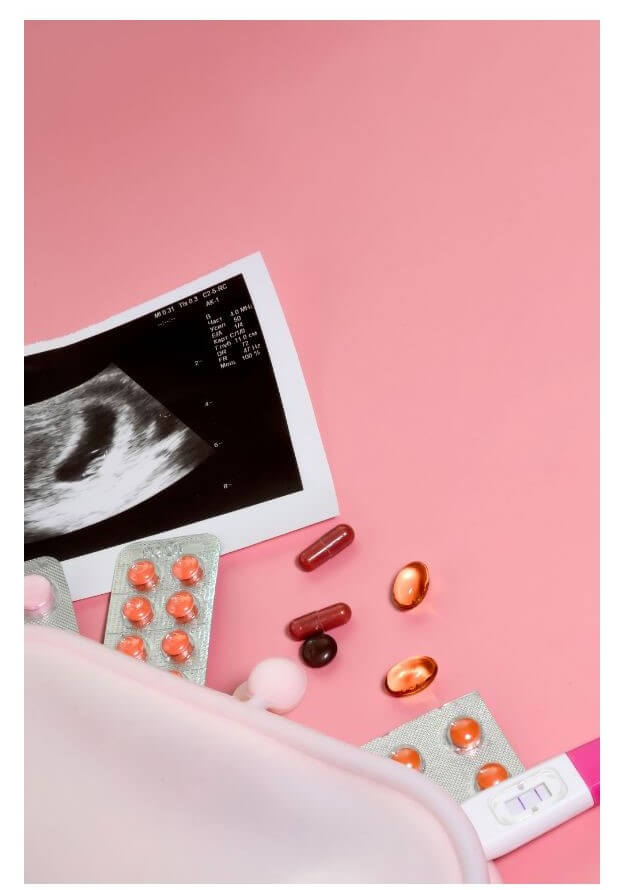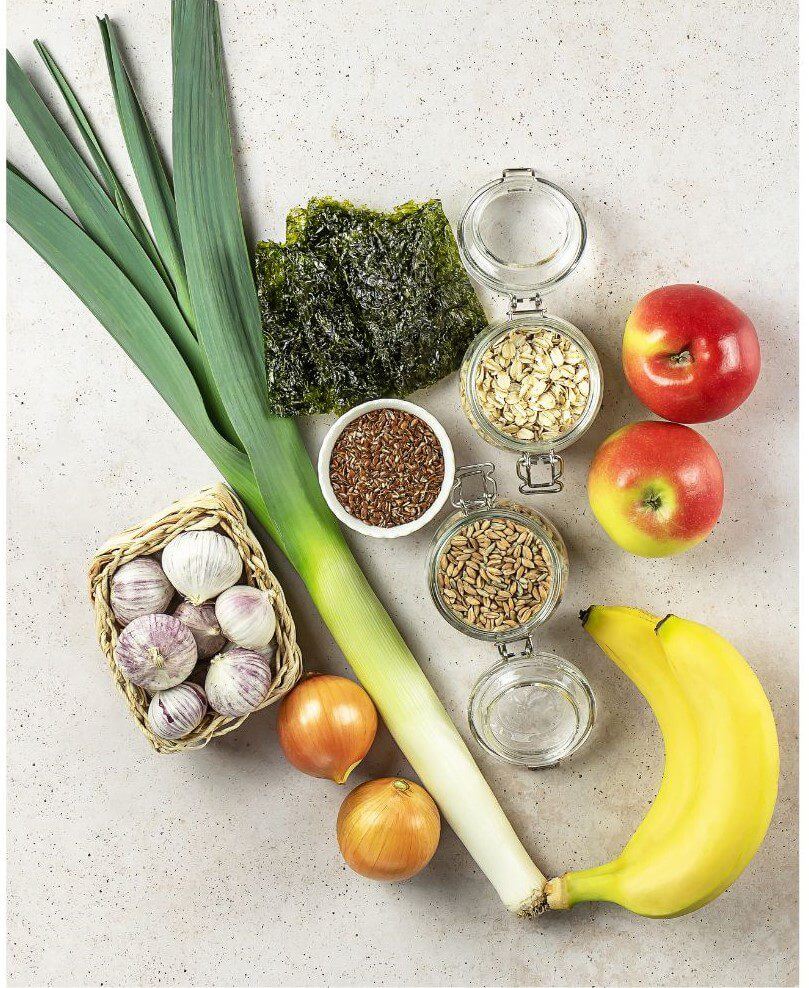Get Ready for a Healthy Pregnancy: Tips to Have Your Best Baby
In today’s world, parents are taking more and more responsibility to get healthy for pregnancy in order to give their future baby the best start in life. Eating the right foods for a healthy pregnancy, staying active, and avoiding environmental toxins can go a long way towards ensuring that both mother and baby are strong and healthy.
What can you do to ensure your little one has the best start in life, before you’re even pregnant? Read on to find out!
Preparing your body for pregnancy naturally
You don’t have to wait until you get pregnant to start optimizing your habits for a healthy baby. Things like eating a balanced diet, taking a prenatal vitamin, and avoiding drinking alcohol are key for preconception health.
The better you take care of your health now, the more you can stack the odds in your favor to minimize pregnancy complications and make sure you have everything you need to nourish and grow a healthy, happy baby.
If you know you want a baby sometime soon, here are a few things you should start to optimize your overall health for pregnancy:
Stop birth control
It should come as no surprise that if you want to get pregnant, you first have to stop using birth control. Speak with your doctor about discontinuing a pill, or removing an IUD, if you have one.
Many women begin taking birth control for reasons other than preventing pregnancy—like PMS or mood swings—and these initial symptoms may pop back up after discontinuing your birth control.
Contrary to popular belief, hormonal contraceptives don’t actually regulate your cycle (or your hormones), so when you stop taking it, those underlying issues that were causing your initial symptoms are likely still present. It may take some time for your period to come back and for your hormones to regulate.
Work on replenishing nutrients depleted by hormonal birth control, like zinc, B vitamins, and magnesium (1).
Related: What to Eat During Your Cycle: The Do’s and Don’ts for a Better Period
Work on maintaining a healthy weight

If you’re thinking about getting pregnant soon, getting to a healthy weight can help your body deal with the stresses of having and caring for a new baby. It’s important to avoid extremes of weight gain or loss.
In addition, if you’re trying to get pregnant and are overweight, it can make conception more difficult as well as increasing your risk for pregnancy complications such as gestational diabetes, hypertension, low birth weight, and preeclampsia (2). There is no one-size-fits-all approach for weight loss or gain before pregnancy, but I recommend starting by balancing your hormones, eating a healthy diet, and working in grounding exercise like tai chi or yoga.
Read: 5 Steps to Get Pregnant If You Have PCOS
Eat for ovulation
Fertility and healthy ovulation depend on adequate dietary protein, healthy fats, and nutrient-dense fruits and vegetables. Healthy foods supply the micro- and macronutrients necessary for conception and hormone balance. For example, women who experienced ovulatory infertility were more likely to conceive after supplementing with B vitamins, including folate, and B12 (3). Nutrients helpful for ovulation include zinc, B Vitamins (especially B6, folate, and B12), vitamin C, and magnesium.
Similarly, if your diet is high in sugar or processed foods, there’s a good chance your toxic load is high, and your blood sugar balance is less than ideal. Women with normal blood sugar levels have a greater likelihood of conceiving than those with blood sugar imbalance and insulin resistance (4).

Begin a prenatal
Even before you get pregnant, it’s a good idea to start taking prenatal vitamins every day. The cells and tissues that will nourish your baby—and even the egg that will become your baby—are formed up to 90 days prior to conception so it’s a great idea to provide the most optimal nutrients possible.
Prenatal vitamins are specially formulated with larger amounts of key nutrients that are important for your baby’s development in the first trimester and beyond. These include calcium, iron, zinc, iodine and omega-3 fatty acids.
Look for a prenatal with the active form of folic acid, methylfolate, to protect from neural tube defects in early pregnancy. While the majority of prenatal studies involve folic acid, many women can’t convert synthetic folic acid to the form that your body can actually use, which is methylfolate.
Listen: Everything You Need to Know About Prenatals with Julie Sawaya.
Avoid environmental toxins
Our modern world has no shortage of pesticides, heavy metals, and endocrine-disrupting compounds like BPA. Many of these can and do accumulate in the body and contribute to ill health and disease.
For example, per- and polyfluoroalkyl substances (PFAS) are a family of chemicals used in non-stick cookware and many other household products. They’re associated with increased incidence of gestational diabetes, childhood obesity, preeclampsia, and fetal growth restriction (5). One study looking at the placentas in mothers in North Carolina found PFAS in 96% of samples tested (6).
Exposure to pesticides and heavy metals in the womb may also lead to cognitive difficulties later in life. Studies show that higher exposure to pesticides is associated with lower IQ scores.
To reduce your toxic load, start by:
- Switching to clean cosmetics and skincare
- Eating organic as much as possible
- Drinking at least 64 oz of filtered water daily
- Eat plenty of fruits and vegetables—especially leafy greens to support your body’s detox pathways
To determine your toxic burden, take the quiz here.
Support a strong microbiome

The foundation of your baby’s microbiome starts with you, and long before you become pregnant. The stronger and more diverse your gut microbiome is, the more likely you’ll pass on your good gut flora to your baby.
The majority of our beneficial bacteria are present by toddlerhood, and it all starts by things like breastfeeding or having a vaginal delivery.
The top things you can do to boost your beneficial flora:
- Eat more probiotic-rich foods
- Eat prebiotic fiber to nourish GOOD gut bacteria (ideally from veggies)
- Leverage the use of supplements like Belly Fix to aid the healing process
- Avoid added sugars
Related: Fiber Making You Bloated? Try These Swaps to Keep the Benefits and Ditch the Bloat
Address your stress
Don’t underestimate the effects of stress on your hormones and fertility. For many women, stress can quickly become toxic without you realizing it. Many chronic health problems are worsened or caused by stress, including autoimmune disorders, high blood pressure, depression, and anxiety.
Having a way to cope with stress benefits you now, but also when you’re caring for a demanding little one while trying to balance your own needs, too.
Other ways to boost your preconception health
Preconception supplements. You don’t need to take a bunch of different supplements when preparing for pregnancy, but there are a few essential nutrients that many women are deficient in and which are important for fetal development. These include omega-3 fatty acids, choline, magnesium, and Vitamin D3.
Exercise regularly. Exercise is important for overall health and also helps with weight gain during pregnancy. It can improve your mood, reduce stress and help you sleep better which are all equally vital to having a healthy pregnancy.
Avoid smoking and alcohol. Smoking cigarettes or marijuana increases the risk for premature birth, low birth weight and other health issues. It’s a good idea not to drink alcohol while trying to get pregnant, as it significantly increases your body’s toxic burden.
Get enough sleep. Sleep not only helps you feel rested but it is essential for hormone balance, proper immune function, and developing a healthy baby. Aim for 7-9 hours a night.
What to remember
Preconception health is about more than just fertility. It’s about creating a healthy environment for your baby to grow and thrive in. Creating a foundation of good nutrition, exercise, sleep, and stress management will go a long way in getting you prepared for your little one!
Resources
- https://pubmed.ncbi.nlm.nih.gov/23852908/
- https://www.nature.com/articles/pr9201134
- https://www.ncbi.nlm.nih.gov/pmc/articles/PMC2366795/
- https://www.ncbi.nlm.nih.gov/pmc/articles/PMC5904600/
- https://www.ncbi.nlm.nih.gov/pmc/articles/PMC7473499/
- https://www.sciencedirect.com/science/article/pii/S0045653522003666
